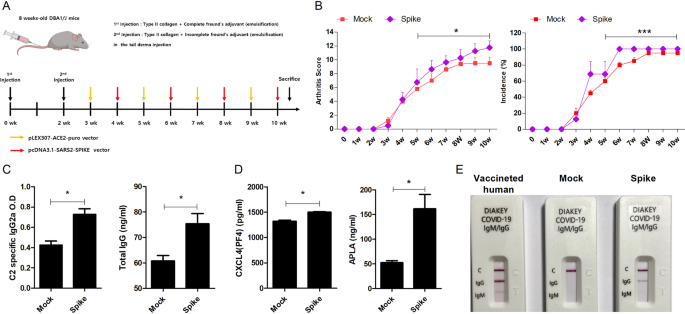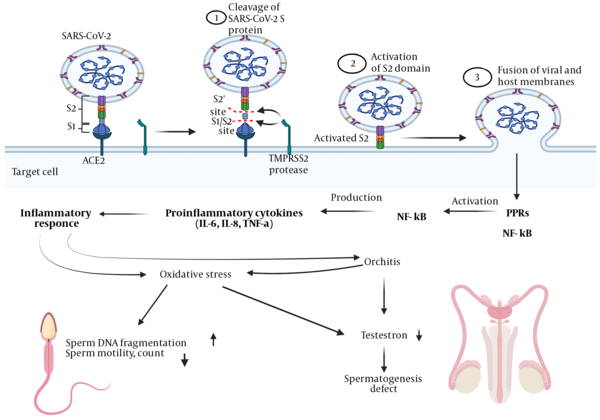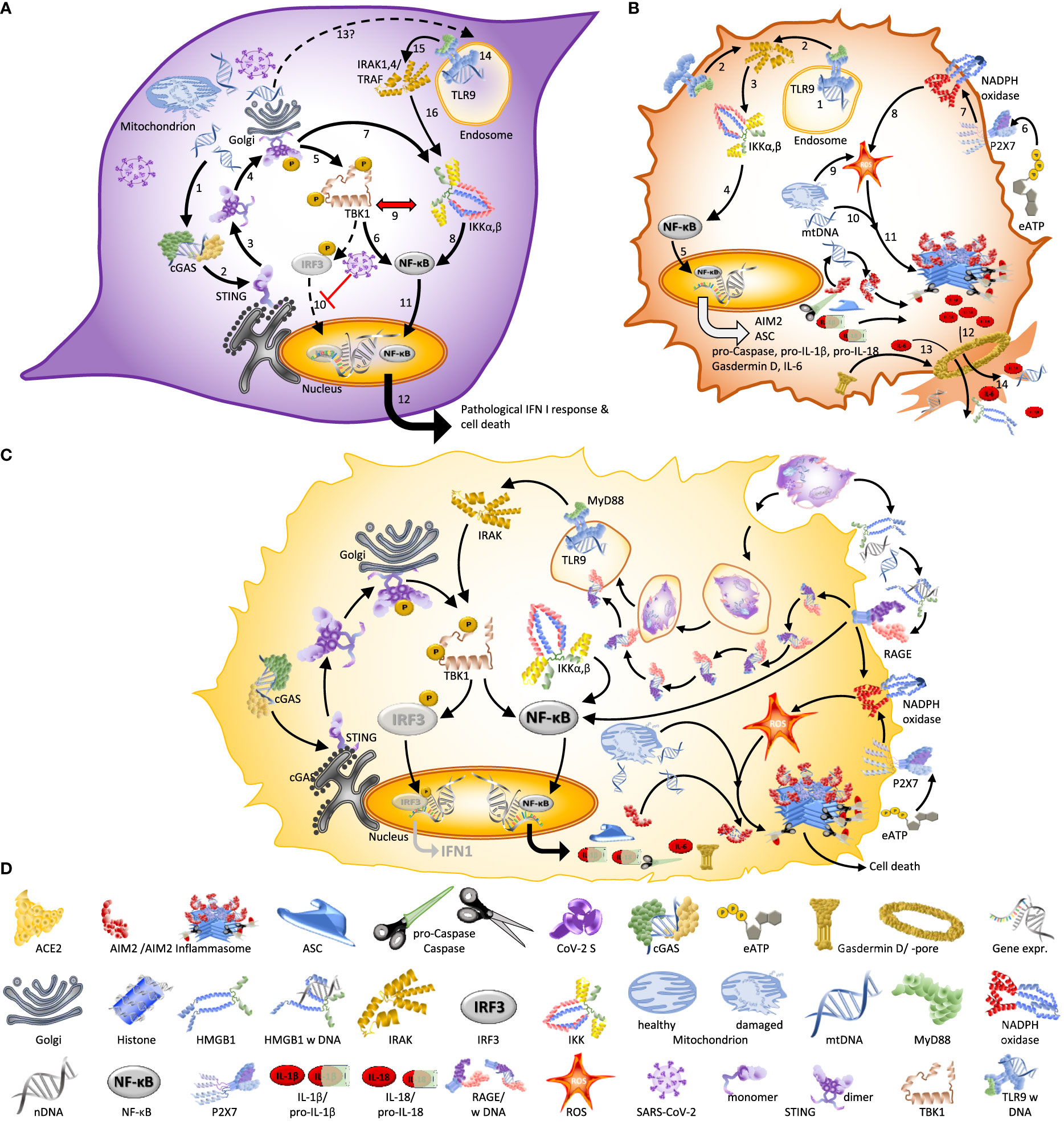SARS-CoV-2 spike protein promotes inflammatory cytokine activation
$ 28.99 · 4.5 (231) · In stock

Background Coronavirus disease 2019 (COVID-19) induces inflammation, autoantibody production, and thrombosis, which are common symptoms of autoimmune diseases, including rheumatoid arthritis (RA). However, the effect of COVID-19 on autoimmune disease is not yet fully understood. Methods This study was performed to investigate the effects of COVID-19 on the development and progression of RA using a collagen-induced arthritis (CIA) animal model. Human fibroblast-like synoviocytes (FLS) were transduced with lentivirus carrying the SARS-CoV-2 spike protein gene in vitro, and the levels of inflammatory cytokine and chemokine expression were measured. For in vivo experiments, CIA mice were injected with the gene encoding SARS-CoV-2 spike protein, and disease severity, levels of autoantibodies, thrombotic factors, and inflammatory cytokine and chemokine expression were assessed. In the in vitro experiments, the levels of inflammatory cytokine and chemokine expression were significantly increased by overexpression of SARS-CoV-2 spike protein in human FLS. Results The incidence and severity of RA in CIA mice were slightly increased by SARS-CoV-2 spike protein in vivo. In addition, the levels of autoantibodies and thrombotic factors, such as anti-CXC chemokine ligand 4 (CXCL4, also called PF4) antibodies and anti-phospholipid antibodies were significantly increased by SARS-CoV-2 spike protein. Furthermore, tissue destruction and inflammatory cytokine level in joint tissue were markedly increased in CIA mice by SARS-CoV-2 spike protein. Conclusions The results of the present study suggested that COVID-19 accelerates the development and progression of RA by increasing inflammation, autoantibody production, and thrombosis. Video Abstract

SARS-CoV-2 spike protein induces inflammation via TLR2-dependent activation of the NF-κB pathway

SARS-CoV-2 and Its Implications for the Human Reproductive System: A Review Article, Nephro-Urology Monthly

Mitochondrial dysfunction induced by rapamycin. a NIH3T3 cells

Immunofluorescence of spleen tissues. (A and B) Th17 cells and

SARS-CoV-2 Spike protein promotes hyper-inflammatory response that can be ameliorated by Spike-antagonistic peptide and FDA-approved ER stress and MAP kinase inhibitors in vitro

PDF) SARS-CoV-2 spike protein promotes inflammatory cytokine

Frontiers Self-DNA driven inflammation in COVID-19 and after

SARS-CoV-2 spike protein promotes inflammatory cytokine activation and aggravates rheumatoid arthritis, Cell Communication and Signaling

SARS-CoV-2 spike protein induces inflammation via TLR2-dependent activation of the NF-κB pathway

SARS-CoV-2 spike protein worsens rheumatoid arthritis in mice

Immunohistochemistry of joint tissues in vehicle-, CoQ10-, and

SARS-CoV-2 spike protein induces the cytokine release syndrome by stimulating T cells to produce more IL-2

SARS-CoV-2 and its impact on the cardiovascular and digestive systems – The interplay between new virus variants and human cells - Computational and Structural Biotechnology Journal

SARS-CoV-2 Spike Protein Accumulation in the Skull-Meninges-Brain Axis: Potential Implications for Long-Term Neurological Complications in post- COVID-19